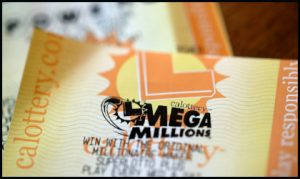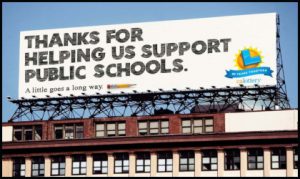State auditor slams California State Lottery’s education commitment
[ad_1]
In California and the state auditor has reportedly criticized local lottery officials for underfunding public education programs to the tune of $36 million while spending about $720,000 on travel and food expenses without considering cheaper options.
According to a Tuesday report from The Sacramento Bee newspaper, the California State Lottery was established in 1984 and had been required to hand over some 34% of its total annual revenues for the purposes of helping to fund public schools and colleges in the western state. But legislation passed ten years ago purportedly altered this requirement by mandating that the self-funded service simply ‘increase the amount it provides to education annually in proportion to the increases in its net revenues.’
Massive modification:
The newspaper reported that this change also allowed the California State Lottery to begin offering bigger prizes alongside access to the multi-jurisdictional PowerBall and Mega Millions games, which is said to have helped the service to more than double its yearly revenues from around $3 billion in 2010 to just over $7 billion for the twelve months to the end of June.
Financial failing:
The Sacramento Bee detailed that the lottery sent about $1 billion to California schools in 2010 with this amount rising by some 70% for the 2017/18 fiscal year to approximately $1.7 billion, which had accounted for around 1% of the state’s annual schools’ budget. However, a Tuesday report from California State Auditor Elaine Howle has now purportedly determined that the service had last year under-funded such educational programs to the tune of $36 million after failing to properly account for an associated increase in profits.
Inside information:
Howle reportedly initiated the investigation at the request of  California State Senator Ling Ling Chang after the representative had received suggestions from the news media and junior California State Lottery employees that a smaller proportion of the service’s net revenues at about 24% had been making their way towards education programs. The auditor purportedly declared that this discrepancy had arisen due to a belief among the lottery’s upper echelon that the 2010 legislation does not require a ‘direct proportional relationship’ between its revenues and the funding of education.
California State Senator Ling Ling Chang after the representative had received suggestions from the news media and junior California State Lottery employees that a smaller proportion of the service’s net revenues at about 24% had been making their way towards education programs. The auditor purportedly declared that this discrepancy had arisen due to a belief among the lottery’s upper echelon that the 2010 legislation does not require a ‘direct proportional relationship’ between its revenues and the funding of education.
Chang reportedly told the newspaper…
“The findings today demonstrate what we suspected all along, that the California State Lottery has a culture of profits first and schools last. They owe our schools millions of dollars and I will be introducing legislation to ensure our schools get what they are owed.”
Demarcation divergence:
For its part and the California State Lottery reportedly told the Associated Press news service that the total amount it dedicates to education programs in ‘The Golden State’ has annually risen by around $300 million since 2010 and that the recent shortfall stemmed from a ‘fundamental difference of opinion’ regarding the interpretation of the California State Lottery Act.
Alva Johnson, Director for the California State Lottery, reportedly told the news service that his office disagreed with Howle’s findings and that always attempts to comply with a mandate to ‘maximize funding for education’ despite there being no clear definition of what actually constitutes its net revenues.
Cost claims:
Regarding the over-spending allegations contained within  Howle’s report and The Sacramento Bee detailed that the auditor determined that the lottery had not followed mandated requirements for eight contracts valued at $5.7 million and had failed to make sure that it was getting the best value on 17 other agreements worth $720,000. The newspaper explained that many of the latter deals had been for hotel accommodation during conferences with authorities criticizing the service for not considering alternatives or re-negotiating on price.
Howle’s report and The Sacramento Bee detailed that the auditor determined that the lottery had not followed mandated requirements for eight contracts valued at $5.7 million and had failed to make sure that it was getting the best value on 17 other agreements worth $720,000. The newspaper explained that many of the latter deals had been for hotel accommodation during conferences with authorities criticizing the service for not considering alternatives or re-negotiating on price.
Expensive indulgence:
The auditor reportedly cited an example from 2014 in which the California State Lottery was said to have spent some $45,000 on food and refreshments for 320 registered guests attending a trade show in Orange County. This purportedly equated to a daily average per guest of about $141 and had included $60 for a dozen granola bars as well as $45 for twelve cookies.
Official assessment:
This portion of Howle’s inquiry immediately drew criticism from California State Controller Betty Yee, who is said to have claimed that the auditor had over-reached her investigative mandate. The elected accountant is furthermore purported to have pronounced that her records showed that the California State Lottery had vetted alternative hotels but that the prospects of saving money elsewhere had often been ‘questionable.’
[ad_2]
Source link
